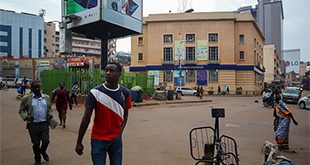Refinery still in doubt
But while the issuance of the production licences and exploration licences lifted spirits in the sector high, the withdrawal of the Russian-led consortium RT Global Resources, from the oil refinery construction negotiations in July was a major setback in Uganda’s mission to become an oil producing nation in four year’s time.
In February, 2015, RT Global Resources, a subsidiary of Rostec, a Russian state corporation had been chosen over South Korean firm, SK Engineering and Construction Co. Ltd by the government to serve as the lead investor for the refinery but pulled out 16 months later after failing to agree with the government on several negotiation clauses.
As a result, the government has restructured the oil refinery project and is now in a new search for a lead investor.
“Initially we had a public-private partnership but with Rostec (RT Global Resources] leaving, we are looking at restructuring the project to bring it to a public-led instead of private sector-led investment,” Dozith Abeinomugsha, the Assistant Commissioner in the energy ministry told an annual general meeting of the Uganda Chamber of Mines and Petroleum (UCMP) in September.
The government is now expected to take the majority of the shares unlike the earlier arrangement where the private developer would have taken the lion’s share.
In the previous arrangement, the refinery was to be constructed on a Public-Private-Partnership (PPP) with a private led investor owning 60% stake while the remaining 40% would be owned by the government including the EAC partner states. It remains unclear how the government intends to fund the $4b refinery expected to produce 60,000 barrels-per-day.
Interestingly, the government insists on having the oil refinery in place before commercial production of oil can start in earnest.
Experts say even though arrangements for crude export pipeline have been agreed upon, the fact that the government insists on holding out for a refinery as a prerequisite for any commercialization remains a stumbling block.
However, Eng. Irene Muloni, the Minister of Energy and Mineral Development told The New Vision in November that the government is working closely with its partners to ensure oil flows by 2020. She said preparations are ongoing about the refinery. Muloni said the Russian firm set new conditions, which were not favourable, so negotiations with them ended.
Lokeris told Parliament on Dec.8 that close to 25 companies/firms have since expressed interest in the project. The selection process is to progress with a view of selecting the most suitable partner for the project by mid-2017.
Kabagambe-Kaliisa exits energy ministry
On the flipside, in November, President Museveni reshuffled his Permanent Secretaries of key ministries and after 40 years of service in the energy and mineral sector, Fred Kabagambe Kaliisa, 62, left office and was replaced by a more youthful Stephen Robert Isabalija.
Kabagambe-Kaliisa had moved up the ranks initially starting out as a fresh graduate in 1976 before becoming a Commissioner of Petroleum Exploration and Production Department in 1991, to the Director of Energy and Mineral Development in 1994 and finally to the position of Permanent Secretary in 1997.
Kabagambe-Kaliisa who always talked about the local oil industry with passion and nostalgia spent close to 30 years overseeing the development of the sector.
“My happiest moment will be when I see our country getting and utilizing the first spoils from our oil,” Kabagambe said in 2011.
****
editor@independent.co.ug
 The Independent Uganda: You get the Truth we Pay the Price
The Independent Uganda: You get the Truth we Pay the Price


